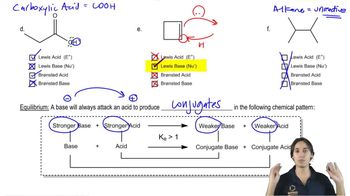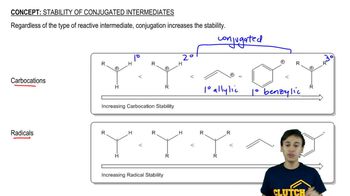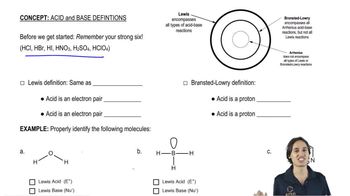Using the convention that the acid and base are on the left side of the chemical equation, label the acid, base, conjugate acid, and conjugate base in the following reactions.
(c)
 Verified step by step guidance
Verified step by step guidance Verified video answer for a similar problem:
Verified video answer for a similar problem:



 2:49m
2:49mMaster The Lewis definition of acids and bases. with a bite sized video explanation from Johnny
Start learning